
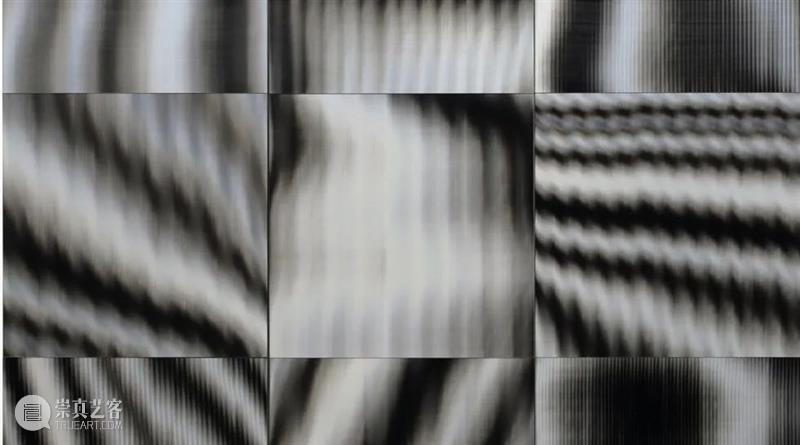
Dr. Dominique Moulon
为法国知名艺术史学家、艺评家及策展人,专研法国数位艺术领域。著有《当代新媒体艺术》和《超越数位的艺术》等书。Dominique Moulon先后于法国布尔日国立高等艺术学院、巴黎第八大学修习艺术学位,并于2017年获得巴黎第一万神殿 – 索邦大学艺术与科学博士学位。曾任教于知名学府帕森设计学院巴黎分校,自2007 年以来一直是芝加哥艺术学院的定期访问讲师。先后于法国蒙特勒伊梅森大众艺术中心、巴黎国际艺术城及巴黎加拿大文化中心担任策展人,并为法国杂志《Images Magazine》、《Art press》数位艺术专栏撰稿。
作品中的组合
by Dr. Dominique Moulon
在 The Art of Combinations (1666) 论文中,Leibnitz讨论到将可变性定义为“所有变异总量”时,他认为此基本前提是“不论数量,所有的事物皆可考虑,然后再将其视为一个整体”。Pascal Dombis 的作品是由无数的线条、文字、与影像组合而成,其中不同元素所组合的固有可变性则由演算公式来处理。在“Irrational Geometrics”系列中,无论使用的介质为何、不论其尺寸是否从几公分至几十米,线条被大量地缝合在一起。以 Hegel 于 Introduction to Aesthetics 中的描述来说明艺术中关于美的概念,说明当这些“抽象形式”受“规律限制”时;或更准确地说,当这些抽象形式受制于艺术家在工作室中构思的演算法时,这些形式早在软体完全无视框架的情况下进行系统性计算之前,很快地几乎被它们的交错模式所淹没。假设艺术家接着拿起锤子与凿子来改变它们随后的回旋,也可说是为了恢复对于当下情况的掌握。例如,在他的玻璃作品中,某些地方被以工具击碎并激起了新的变化,借此于媒介中增加裂痕以成为潜在发展的路径,并且使这样的发展让机器能够继续延续进行处理。
当你凝视“Meta-Aura”系列作品时,你将无法抗拒地迷失于作品表面,因为我们无法抑制被光影所蒙蔽的双眼,目光无法永远固定一处。这些图像体现了艺术家对于熔合形式简易性与进行过程中激进性质之间的痴迷,无休止地以独立的细节与难以觉察的方式重复他的曲直线条。然而这样的作品名称,Dombis 也在影射 Walter Benjamin 对于光晕(aura)的观点。根据理论学者的说法,艺术作品无法被领会,仅能“于它所在的地方呈现存在的独特性”。Dombis以数位媒介为工具,即使他比谁都清楚知道他们的可重复性有多高;然而,他的艺术作品始终是独一无二的,因为它们正是可以无止境产出所呈现出来的生成结果。它们的独特性因为艺术家的选择而被保证,在特定时刻,各种素材产出结果的当下,它们便在该空间中向全世界展示自我。
Rosalind Krauss 在 Grids 这篇具开创性的文章中说明着:“在本世纪初始之时,先是出现于法国、然后是俄罗斯、接着出现于荷兰,网格这种结构从那时起便一直是视觉艺术中现代主义野心的象征。先是浮现于战前立体派画作之中,接着显得更加严苛与明显;除了其他事物以外,网格宣示着对现代艺术的沉默意志以及它对文学、叙事、与话语的敌意。”Dombis 从网路上追踪网格的视觉呈现,并搜集了数以万计的网格以覆盖他的参与式装置“Mixed_Grill€”中的墙壁空间。相互交织后,这些网格便形成一个表面,使观众能够透过光栅板仔细观察,并从这多重阅读层之间进行探索。再一次地,人类的手在这些装置之中扮演着关键角色,因为它在这壁画数据库之中来回地徘徊;如同60年代晚期Andy Warhol 在洛杉矶郡立美术馆中Maurice Tuchman 所设立的艺术与科技计划中首次实验式地呈现使用光栅的技术。这当然是一个不同的世代,但是当时的艺术家们已经开始着手探索他们那个时代的新奇科技。值得注意的是,Dombis 在后网路时代于波普艺术传统中刻写他累积的创作姿态,并把选择权留给机器去处理。他的网格或图像是经由演算法处理的,但是最原始的激进意图仍然存在,因为它们代表了对于线性叙事的一种不妥协替代方案。
然而,文字在 Pascal Dombis 的艺术实验中是最重要的元素。他从机器深处发现代码与演算法的自我展现、抑或于伺服器的数据中心里不厌烦地以重复的文本持续发送指示。他甚至搜集了数十万个 Google 索引视觉元素,只因为它们代表了我们的日常人工智慧。但是,当你在 Google 搜寻引擎中输入“Google”之后,下个步骤是什么呢?这种有点绝望的探索—以十分猛烈的方式—清楚表明了艺术家测试与感受他所建立的系统极限能力。一瞬之间,就在上述内容中,在Rosalind Krauss 所提到的“沉默”完成之前,艺术家便已停止搜寻,超越了任何形式的过渡。我们因此不再处理文本,而改以处理文本性;或者更确切地说,从语言的挣扎之中渗出的一些质地。当文字转变成图像时,这与 Edouard Glissant 所描述的没有太大的不同:“语言即是我们的风景”。
早在1998年,Nicholas Negroponte 便表明数位革命的世代已经结束。在这种情况下,除了以前缀词“后…”的方式,我们该如何描述现在所生活的全数位社会呢?在这个后世代中,那些我们习惯将曾经犯过的错归咎于机器的情况,现在已经变得十分完美。这些机器变得越来越不令人惊奇或困惑—也就是说,只要它们不落入像是 Pascal Dombis 这类陶醉于偶然机缘的艺术家之手中。例如,他事先并不知道他的“Post Digital Mirrors”作品表面将如何反映世界。事实上,这些作品并没有映射任何实质性的东西,而是反映了当过程被推至极限时,永远不会陷入困境的意外情境。甚至可以说,这些作品确实呈现了单色画所达到的那种寂静。意外的可变性发生在艺术家“Post Digital Mirrors”作品的表面上,使它们看起来像皱褶那般,将我们送回 Gilles Deleuze 的哲学与他对 Leibnitz 的解释:“混沌并不存在;它是一种抽象,因为它无法从筛网或荧幕上分离出来使事物浮现 (并非一无所有)。”这所谓的“事物”,正是从艺术家掌控、甚至是机器控制之中逃离出来的东西。它的轮廓有时看起来像是指示距离的地形曲线,当我们追求绝美事物之时,暴露我们解码路上困境的决心。
作家兼哲学家 Eric Sadin 认为自己:“某部份是带有政治意图的作家,使用着 George Orwell 的美丽辞藻来表达;某部份是一位吹哨者,并非为了必须揭露隐藏的不道德行为而写作,而是作为一种智慧型企业,用来辨识与重组那些分散但收敛的标志,这些标志违背了既得民主权利且鼓励危害人类尊严的政治犯罪。”同样地,当 Pascal Dombis 专注于数位时代中的控制观点时,他可以被形容为一位政治艺术家。在当代艺术中不可避免的白色方块之中,他毫不犹豫地将作品表面涂黑,将它们置于构成“控制”一词的字母语境之中。如同 George Orwell 所着的《1984》一书中 Syme 说的:“我们将语言切至入骨”。这不就是 IBM 与 Apple 早在 Google 与 Facebook 加入战局之前就开始的事吗?他们强迫着我们使用可控制且删除的按钮。单以 CTRL 控制键便足以使 Dombis 的艺术作品运转起来。Orwell 在他的时代无法想像的一切,现在正在成为事实;因为我们极度地渴望获得 Warhol 般的名气,而且,为了建立最好的世界这种崇高理想,我们将私生活大范围地交给企业伺服器,真心诚意地希望能满足我们最小的期待。
On Combinations at Work
Dr. Dominique Moulon
In the Essay on the Art of Combinations (1666) Leibnitz’s basic premise is that “it is possible to consider things, however numerous, and take the whole as one” before defining variability as the “quantity of all variations”. Pascal Dombis’s artworks are the results of myriads of lines, texts and images combined together, and the variability inherent in the different elements combined is taken care of by calculators. In the Irrational Geometrics series, lines are stitched together in vast numbers, no matter what the nature of the media used might be, whatever their size, from a few centimetres to dozens of metres. When these “abstract forms” are “subjected to laws”, to use Hegel’s phrase in his Introduction to Aesthetics dealing with the concept of Beauty in Art, or more precisely when these abstract forms are subjected to algorithms conceived by the artist in his studio, long before software programmes carry out the calculations systematically with a total disregard for the frames, soon virtually overwhelmed by their interlacing patterns. If the artist then grasps a hammer and a chisel to alter their ensuing circumvolutions, it is maybe to resume control over what is going offhand. In his glass pieces, for instance, some of the layers are cracked by hand tools that provoke new accidents, adding crackles into the medium that become companions on the potential vagrant routes that the code allows machines to take.
When you gaze at the works in the Meta-Aura series, you irresistibly get lost along their surfaces because our unquenchable eyes, alternatively blinded by lights and shadows, are never fixed. The prints crystallize the artist’s obsession to fuse the simplicity of forms with the radical nature of the process under way, endlessly repeating his curvaceous straight lines with discrete details, hardly perceptible. But with such a title, Dombis is also alluding to Walter Benjamin’s notion of the Aura. According to the theoretician, a work of art cannot be apprehended but in “the uniqueness of its existence at the place where it stands”. Dombis is working with digital media and although he knows better than anyone else how excessively reproducible they are, his art pieces are unique because they are precisely the results of generative processes that can churn them out endlessly. Their uniqueness is guaranteed by the artist’s choice, at the very moment when various materials generate them, in the very space where they reveal themselves to the world.
Rosalind Krauss wrote in her seminal essay on Grids: “In the early part of this century there began to appear, first in France and then in Russia and in Holland, a structure that has remained emblematic of the modernist ambition in the visual arts ever since. Surfacing in pre-War cubist painting and subsequently becoming ever more stringent and manifest, the grid announces, among other things, modern art’s will to silence, its hostility to literature, to narrative, to discourse.” Dombis has tracked down visual occurrences of the grid on the Internet and collected tens of thousands of them to cover the walls of the spaces where his participatory installation Mixed_Grill(e) happens to take place. When interlaced all together, these grids form a surface that the audience can scrutinize with the help of lenticular plates and probe in its multiple reading layers. Once again, the human hand has a key role in these installations because it hovers over the mural data bank while the lenticular sends us back to Andy Warhol’s first experimentations with this material in the Art and Technology Program set up by Maurice Tuchman at the Los Angeles County Museum of Art in the late 60s. This was of course a totally different era, but artists were already laying their hands on the technological novelties of their days. It is remarkable that Dombis inscribes his accumulative creative gesture within the pop art tradition in a post-Internet age, when making choices is left to machines. His grids or patterns are algorithmic but the original radical intention is still there because they represent an uncompromising alternative to linear narratives.
Yet, texts are most essential in Pascal Dombis’s artistic experimentations. He finds them in the depths of his machines where codes and algorithms express themselves, or in the servers’ data centres that he titillates with relentlessly repeated textual requests. He even goes as far as to collect hundreds of thousands of Google-indexed visuals simply because they would represent our everyday artificial intelligence. But what is the next search step once you have keyed “Google” in your Google search engine? This somewhat hopeless quest speaks volumes for the artist’s capacity to test and feel – with a vengeance – the limits of the systems he has set up. In a split second, just before the “silence” mentioned above by Rosalind Krauss is completed, the artist stops the search, beyond any form of excess. We are then no longer dealing with texts but with textuality or rather with some texture oozing from the struggle with language that is not so dissimilar to what Edouard Glissant writes when text becomes image: “Languages are our landscapes”.
As early as 1998, Nicholas Negroponte said the digital revolution was over. In that context, how can we describe the all-digital society we live in with anything but the prefix –post? In this post-era, the machines that we were accustomed to blame for the errors they used to make have now become quite faultless. They have become less and less surprising or puzzling – that is to say, provided they are not in the hands of artists such as Pascal Dombis who revel in serendipity. He never knows beforehand, for instance, how the surfaces of his Post Digital Mirrors are to reflect the World. As a matter of fact, they do not reflect anything material but the accidents that the process never fails to get stuck into, when pushed to its limits. It could even be said that they do achieve the kind of silences that monochrome paintings achieve. The variability of the accidents taking place on the surfaces of his post digital mirrors makes them appear as folds, which sends us back to Gilles Deleuze’s philosophy and his interpretation of Leibnitz: “Chaos as such does not exist; it is an abstraction since it cannot be detached from a sieve/ a screen that makes something emerge (something rather than nothing)”. That “something” is precisely what evades the artist’s control and even, sometimes, the machines’. Its contours sometimes look like topographical curves indicating distances and exposing our determination to decipher what comes our way when we are in quest for the sublime.
Writer and philosopher Eric Sadin now considers himself “partly a writer with a political purpose, to use George Orwell’s beautiful phrase, and partly a whistle-blower who does not write out of a necessity to expose hidden reprehensible deeds that should be revealed, but as an intellectual enterprise consisting in identifying and regrouping scattered but converging signs that go against acquired democratic rights and encourage political crimes against human dignity.” Likewise, Pascal Dombis can be described as a political artist when he focuses on the notion of control in the digital age. Inside the inevitable white cube of contemporary art, he does not hesitate to blacken the surfaces of works, contextualizing them with the letters that form the word “CONTROL”. “We cut language to the bone”, says Syme in George Orwell’s 1984. Isn’t it what I.B.M. and Apple initiated, long before Google or Facebook joined the waggon, when they forced us to use buttons that both control and delete? The sheer CTRL command key is enough to get Dombis’s art going. What Orwell could not conceive in his own days is now becoming reality because of our immoderate desire to reach Warhol-like fame and by giving away whole swathes of our private lives to corporate servers that, for the noble goal of building the best of worlds, earnestly and faithfully anticipate the fulfilment of our slightest expectations.
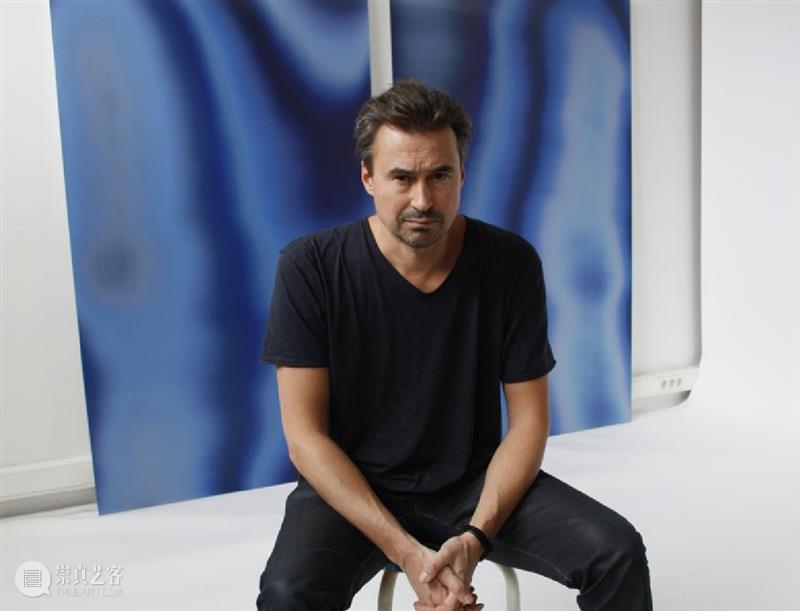
2014 Irrational Geometrics, Holly Hunt, New York - USA
2013 Post-Digital, TZR Galerie, Düsseldorf - DE
2013 The End(less), Nuit Blanche, Métro Gare de Lyon, Paris - FR
2013 Glitch_Stitch, Galerie Pascal Janssens, Gand - BE
2012 Extra_Vague, Galerie RX, Paris - FR
2012 Eurasia, The Cat Street Gallery, Hong Kong - HK (cat.)
2012 Eurasia, TZR Galerie, Düsseldorf - DE (cat.)
2012 Le Musée en Herbe, Paris - FR
2012 IBU Gallery, Paris – FR
2011 Gott ist Tot, Claudio Bottello Contemporary, Turin - IT
2011 Pourquoi ?What_Next ?, Nuit Blanche, Saint-Eustache, Paris - FR
2010 Text(e)~Fil(e)s, Palais-Royal, Paris - FR (cat.)
2010 IBU Gallery, Paris - FR
2010 EXCES I, The Page Gallery (Die Galerie), Seoul - KR (cat.)
2010 EXCES II, Wooson (Seok) Gallery, Daegu - KR (cat.)
2009 Image-Flux, Galerie RX, Paris - FR (cat.)
2009 Time Spirals, The Cat Street Gallery, Hong Kong - HK (cat.)
2008 Géométries Irrationnelles, Galerie municipale, Vitry-sur-Seine - FR (cat.)
2007 BLINK, Artpool, Budapest - HU (cat.)
2007 RRB, Espace Orenga de Gaffory, Patrimonio - FR
2006 @tom1k, Hôtel Pams, Mairie de Perpignan, Perpignan - FR
2005 SpamScape, Maison Populaire, Montreuil - FR
2005 Château de Linardie, Senouillac - FR
2004 Hyper-Structures, Fort Napoléon, La Seyne-sur-Mer - FR (cat.)
2004 Galerie Mabel Semmler, Paris - FR (cat.)
2002 Galerie Mabel Semmler, Paris – FR
2001 Galerie EOF, Paris – FR
Group Exhibitions
2020 Algorithm & Appropriation, Bluerider Ren-Ai Gallery, Taipei – TW
2020 Hemera, IBU Gallery, Paris – FR
2019 The Invisible Man, Wood Street Galleries, Pittsburgh – USA
2019 Linha Atemporal, Dan Galeria, São Paulo - BR
2019 ArtJaws, Zurcher Gallery, New York - USA
2019 Einsichten IV, Galerie Hengevoss-Dürkop, Hamburg - DE
2019 Cape Town Art Fair, Galerie Pascal Janssens, Cape Town - SA
2019 SP-Arte, Dan Galeria, São Paulo - BR
2019 Art Paris, Galerie Hengevoss-Dürkop, Paris – FR
2019 Wechselspiel, Pforzheim Galerie, Pforzheim - DE
2019 Mutatio, Garage Amelot, Paris - FR
2018 Artistes & Robots, Galeries Nationales, Grand Palais, Paris - FR (cat.)
2018 Cape Town Art Fair, Galerie Pascal Janssens, Cape Town - SA
2018 Carte Blanche, Galerie Hengevoss-Dürkop, Hamburg - DE
2018 The End(less) / Exo Gallery, EP7, Paris - FR
2018 KIAF, The Page Gallery, Seoul - KR
2018 Carte Blanche Zeitgenössisch, Institut Français, Hamburg - DE
2017 Cybernetic Consciousness, Itaú cultural, Sao Paulo - BR (cat.)
2017 Modus Operandi, The Société, Bruxelles - BE
2017 Interferences, Galerie NMarino, Paris - FR
2017 Cape Town Art Fair, Galerie Pascal Janssens, Cape Town - SA
2017 Das Skulpturenprojekt, Städtische Galerie, Villingen-Schwenningen - DE
2017 FNB JoburgArtFair, Galerie Pascal Janssens, Johannesburg - SA
2017 Variation, Cité internationale des arts, Paris - FR
2017 A bao a qou, Bamhaus, Luxembourg
2016 Monochrome, The Société, Bruxelles - BE
2016 Connected, Centrale for contemporary art, Bruxelles - BE (cat.)
2016 Société de Service, Plateforme, Paris - FR
2016 Cape Town Art Fair, Galerie Pascal Janssens, Cape Town - SA
2016 Interactivo, Galería Odalys, Madrid - ES (cat.)
2016 Summer Exhibition, Galerie Pascal Janssens, Gent - BE
2016 Bizarro, Galerie Frédéric Castaing, Paris - FR
2016 RE-culture 4, Agora Argyri, PATRAS - GR (cat.)
2016 The End(less), Studio Abel14, Paris – FR
2015 Nel Blu dipinto di Blu, da Yves Klein a..., Museum of Modern and Contemporary Art, Acri - IT (cat.)
2015 Perspectives, Art Plural Gallery, Singapore
2015 Ré-émergence, La Maison Populaire, Montreuil - FR (cat.)
2015 Cine Retrospective, Perth Cultural Centre, Perth - AUS
2015 ArtParis, Galerie Pascal Janssens, Paris - FR
2015 London Art15, Galerie Pascal Janssens, London - UK
2015 Voltaje, Centro Creativo Textura, Bogotá - COL
2015 Variation, Espace des Blancs Manteaux - Paris, FR
2015 The End(less), La Noche en Blanco, Bogotá - COL
2015 Arte-Scienza, Palazzo Costanzi, Trieste, IT (cat.)
2014 Art14, Galerie Pascal Janssens, London - UK
2014 ArtParis, Galerie Pascal Janssens, Paris - FR
2014 Summer Show, Galerie Pascal Janssens, Gent - BE
2014 Portrait, Galerie RX, Paris - FR
2014 Art Taipei, The Cat Street Gallery, Tapei - TW
2013 NOISE, 55th Venice Biennale of Art (Collateral Event), Venise - IT (cat.)
2013Année Lenôtre, Les Nouvelles Folies Françaises, Domaine National de St-Germain-en-Laye - FR
2013 Oltre il sublime, Art Space Luisi Spa, Trieste - IT
2013 Wonder Works, The Cat Street Gallery, Hong Kong - HK
2013 Plaisir, Galerie RX, Paris - FR
2013 Made in light, Fondation Vasarely, Aix-en-Provence - FR
2013 Made in light, Fondation EDF, Paris - FR
2013 Artshow Busan, The Page Gallery, Busan - KR
2013 Show Off, the Media Art Fair, Galerie RX, Paris - FR
2013 KIAF, The Page Gallery, Seoul - KR
2012 Schrift und Bild, Museum Kunstpalast, Düsseldorf - DE
2012 Won Ocean, Neue Galerie Gladbeck, Gladbeck – DE
2012 Plaisir, Galerie RX, Paris - FR
2012 Update_4 Biennal, iMAL, Bruxelles - BE
2012 Non & Digital, The Central House of Artists, Moscow - RU
2012 Show Off, the Media Art Fair, Paris - FR
2012 Autour du Psychedelisme, Galerie Janos, Paris - FR
2011 Hybrid Boy, TZR Galerie, Düsseldorf - DE
2011 HK Art Fair, The Cat Street Gallery, Hong Kong - HK
2011 SOAF, The Page Gallery, Seoul - KR
2011 Signal 8, The Cat Street Gallery, Hong Kong - HK
2010 Tou_R0se, Traverse, Centre Bellegarde, Toulouse - FR
2010 Salon Dessin Contemporain, Galerie RX, Paris- FR
2010 HK Art Fair, The Cat Street Gallery, Hong Kong - HK
2010 New Era, Galerie RX, Paris - FR
2010 Paratissima, Claudio Bottello Contemporary, Turin - IT
2009 EcritureAbstraction, Galerie RX, Paris - FR
2009 HK Art Fair, The Cat Street Gallery, Hong Kong - HK
2008 Imaging by numbers, Block Museum, Chicago - USA (cat.)
2008 art.ficial 4.0, Instituto Itaú cultural, Sao Paulo - BR (cat.)
2008 Great wall of Oakland, Oakland - USA
2008 Videoholica 08, Velchev Art Museum, Varna - BU
2008 Signal 8, The Cat Street Gallery, Hong Kong - HK
2007 Traverse, Centre Bellegarde, Toulouse - FR (cat.)
2007 Victory Media Network, Dallas - USA
2007 Slought in Berlin, Galerie Heike Curtz, Berlin - DE
2007 Slick, Galerie Numeriscausa, Paris - FR
2006 Almost Art, Slought Fundation, Philadelphia - USA
2006 Process Revealed, Artpool, Budapest - HU
2006 Trampoline, Broadway Media Centre, Nottingham - UK
2005 Espace Recherches / DesignLab, Salon du Meuble, Paris - FR
2005 Nuit d’Art, Place Saint Sulpice, Paris - FR
2004 Plasticité, Galerie Mabel Semmler, Paris - FR
2004 Generative Art Conference, Milan - IT
2004 International Festival of Electronic Art 404, Rosario - AR
2004 Canon Digital Creator Award, SVA Computer Art, New York - USA
2003 Canon Digital Creator Award, Spiral gallery, Tokyo - JP (cat.)
2002 Espace Cardin, Paris - FR
2000 Le temps fractal, Galerie Xippas, Paris - FR (cat.)
2000 Universal Concepts Unlimited, New York - USA
1999 Fractalisations, Villa Tamaris, La Seyne-sur-Mer - FR (cat.)
1999 Fractalisations,Abbaye de Ronceray, Angers - FR
1999 Habiter les réseaux, Galerie de l’école des Beaux-Arts, Metz - FR
1999 Centre Culturel Français, Turin - IT
1997 Fractal Art, Fondation Ricard, Paris - FR (cat.)
1997 Fractal, Palazzo Economo, Trieste - IT
1997 Zoom, Visual Arts Gallery, Purchase College, New York - USA (cat.)
1997 Caos Vertiginoso, Galleria Cruce, Madrid - SP
1996 Microcosmos, University of Georgia, Athens - USA
1996 Vous avez dit Fractal, Musée, Médiathèque, Le Parefeuille, Enclos de la Source, Uzès - FR
1996 Modernita, Palazzo Bricherasio, Turin - IT (cat.)
1995 Galerie Arx, Turin - IT (cat.)
1995 Art Fractal, Galerie Angle, Saint-Paul-Trois-Châteaux - FR
1994 Ars Electronica (Honorary Mention), Linz - AT (cat.)
1993 Salon de Montrouge, Montrouge - FR (cat.)
1991 Salon de Montrouge, Montrouge - FR (cat.)
1991 Jeune Peinture, Paris - FR (cat.)
1990 Jeune Peinture, Paris - FR (cat.)
1988 Multi Media Art Gallery, New York - US
1988 Plan de Travail, Lyon - FR
1986 Plan de Travail, Lyon - FR
Publications
2018 Pascal Dombis, Monograph, Supernova éditions
2018 L’art au-delà du digital, Dominique Moulon, nouvelles éditions Scala
2018 Artistes & Robots, Laurence Bertrand Dorléac, Jérôme Neutres, Réunion des musées nationaux
2015 Art et Numérique en résonance, Dominique Moulon, Maison populaire et les nouvelles éditions Scala
2015 Mathematics and Art – A Cultural History, Lynn Gamwell, Princeton University Press
2014 Géométrie de l’excès, Michel Verlinden, Focus Vif Express
2013 Lettering Large The Art and Design of Monumental Typography, Steven Heller & Mirko Ilic, The Monacelli Press
2013 Artpool – The Experimental Art Archive of East-Central Europe, Artpool, Budapest
2012 A New Regime of Images, Christine Buci-Glucksmann, Art Absolument
2012 Pascal Dombis’ Eurasia, Kay Heymer, TZR Galerie, Düsseldorf
2011 CensorZip, Pipeline Magazine, issue #24
2011 Spigolature tra Venezia e la Francia, Giancarlo Pagliasso, revue Zeta
2010 Aesthetics of Digital Art, Simon Erohin, publisher: Aletheia (Russian)
2010 Exces, Henri-François Debailleux, Die Galerie, Seoul
2009 Art, Code, and the Engine of Change, Paul Hertz, CAA Art Journal
2008 Philosophie de l’ornement : D’Orient en Occident, Christine Buci-Glucksmann, Galilée
2007 From Technological to Virtual Art, Frank Popper, MIT Press
2007 SpamScape, Maria Maccotta et Pierre Vermeersch, La Re-Visite, Traverse, Toulouse
2007 Dombis fait bonne impression, Henri-François Debailleux, Libération
2006 Au-delà de la mélancolie, Christine Buci-Glucksmann, Galilée
2004 La Main de l’Homme, Blackhawk, La Seyne-sur-Mer
2002 La folie du voir, Christine Buci-Glucksmann, Galilée
2002 Pascal Dombis : Les peintures bien roulées de la computation, Joseph Nechvatal
2002 Dombis, des lignes à l’infini, Henri-François Debailleux, Libération
2000 L’art depuis 1945, Hervé Gauville, Hazan
Public Art
2020 Lujiazui HARBOUR CITY, Pascal Dombis & Gil Percal, , Shanghai, CN
2016 Ecole Nationale d'Architecture de Strasbourg, Pascal Dombis and Gil Percal, FR
2015 Kings Square, Pascal Dombis and Gil Percal ,Perth, AUS
Collections
Daegu Art Museum, Daegu, KR
Ville de Vitry-sur-Seine - FR
Musée des Beaux Arts, Szepmuveszeti Muzeum, Budapest - HU
Seiko Epson Corp. - JP
Canon Inc. - JP
Victory Arts Collection - USA
Block Museum, Chicago - USA
Fondazione Palazzo Bricherasio - IT
Yageo Foundation - TW
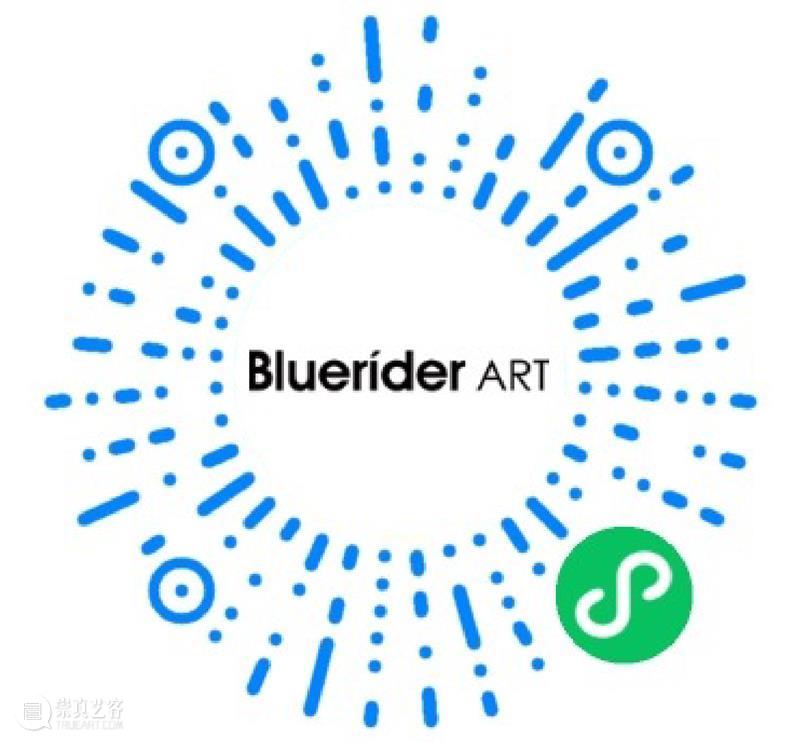
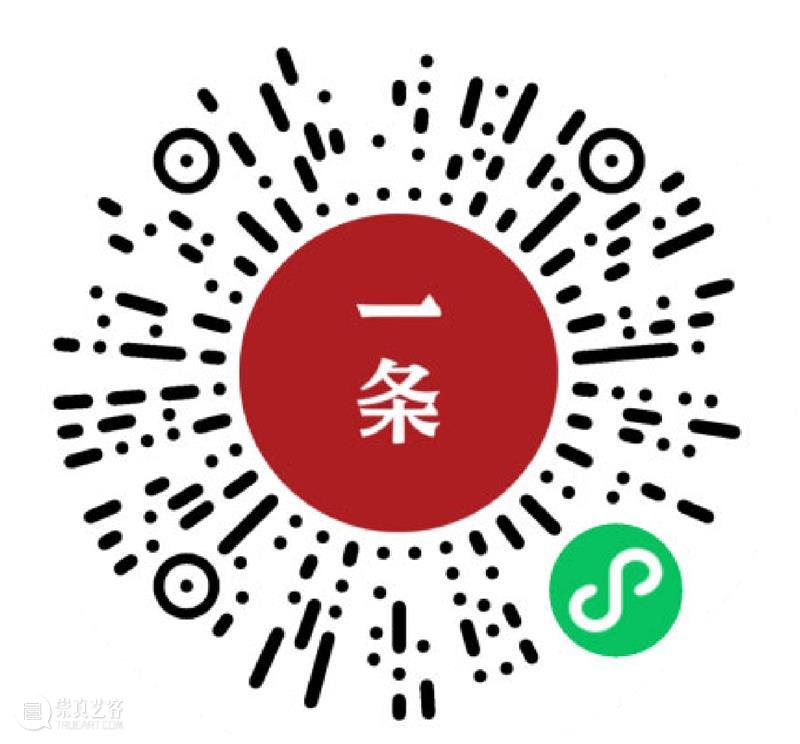
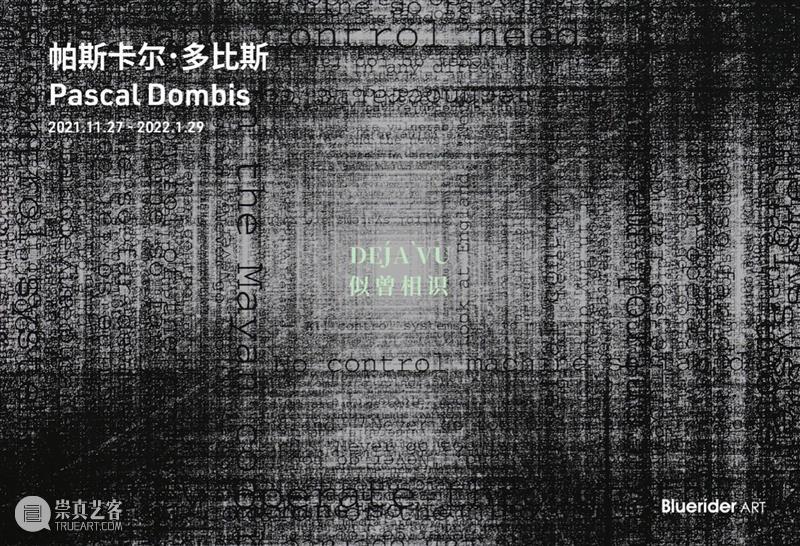
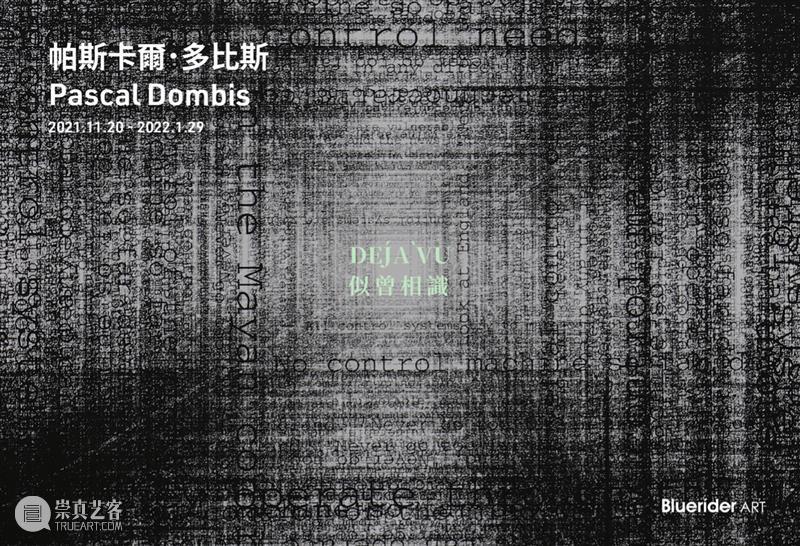
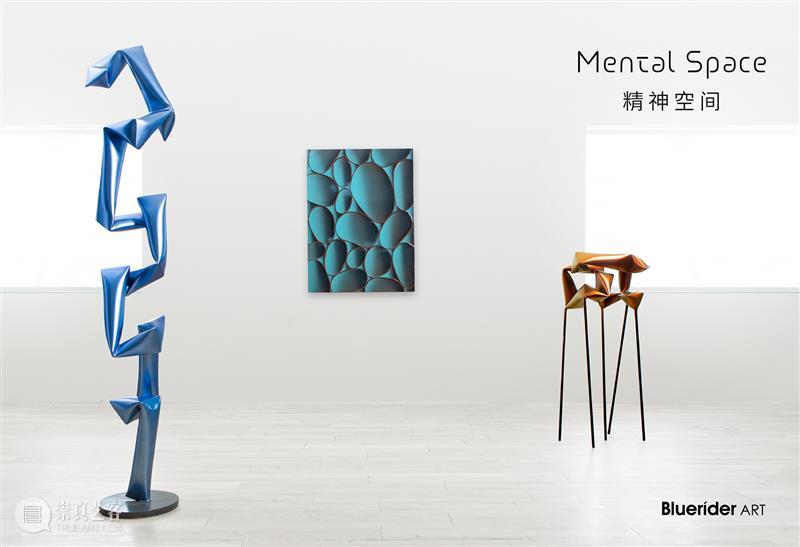
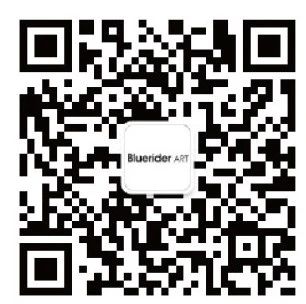
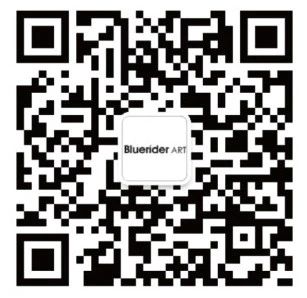
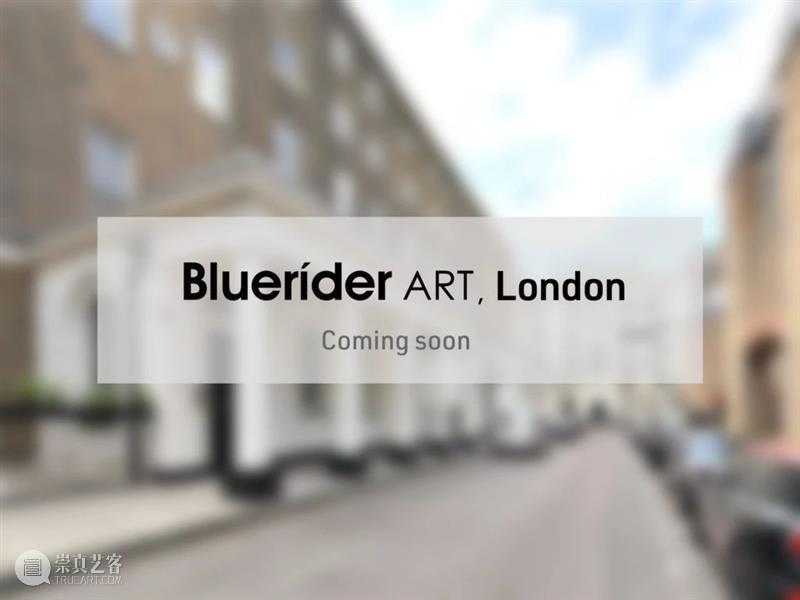
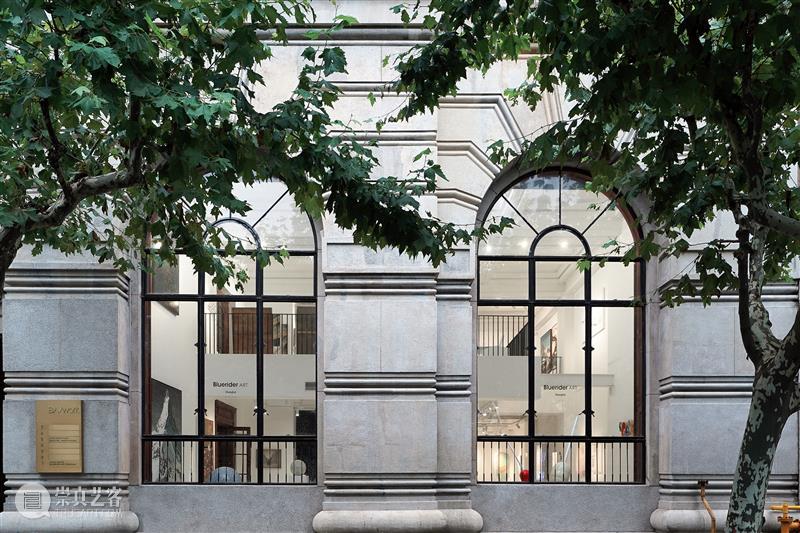
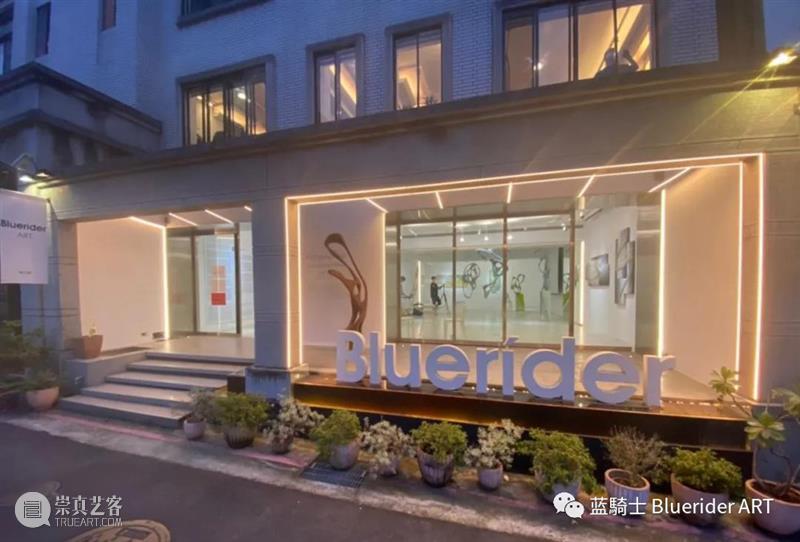
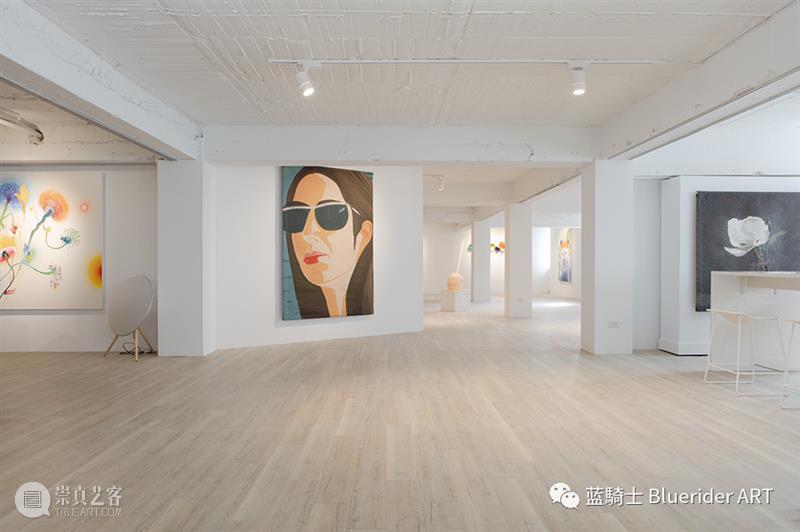


已展示全部
更多功能等你开启...





 分享
分享